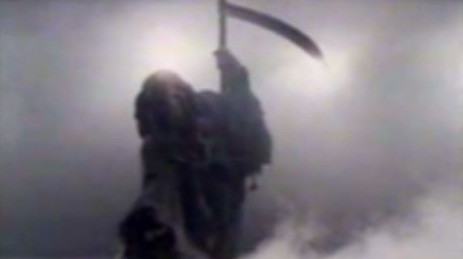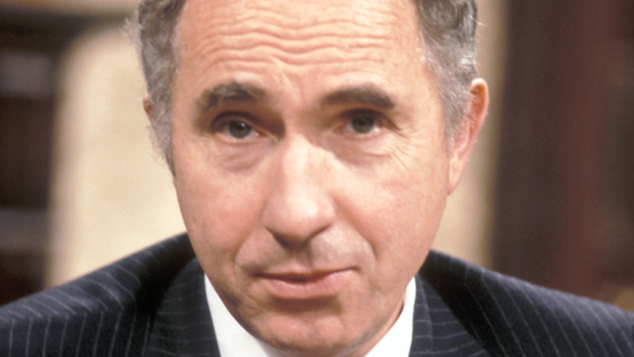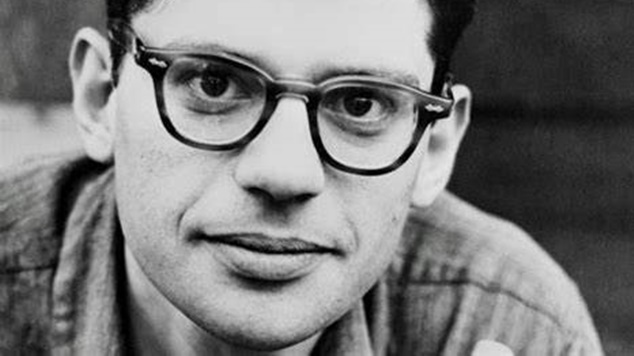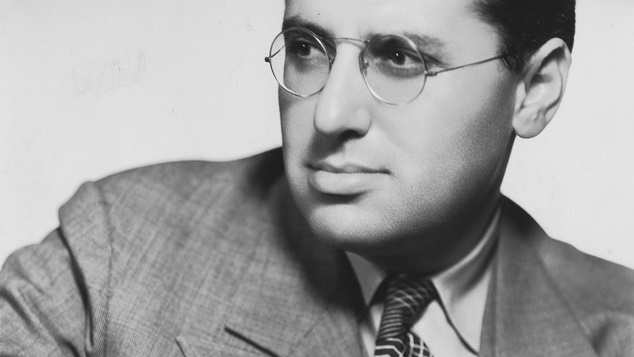Australia’s infamous ‘Grim Reaper’ campaign aired on television for the first time on this day back in 1987.
The clip saw everyday Australians portrayed as bowling pins while the messenger of death took them all out with a bowling ball symbolising HIV. At a time when there were no successful treatments for the virus, and the number of infections were growing, the Australian government pushed for a campaign that would cut through.

The advertisement was part of a larger campaign that include print material explaining the realities of HIV and preventative measures in greater detail. The ad was commissioned by Bill Bowtell, a senior advisor to health minister Neal Blewett. It was created by advertising guru Siimon Reynolds and featured voice over artist John Stanton.
The campaign had an unintended consequence when the reaper character became unintentionally identified with gay men living with HIV, provoking negative reactions towards the LGBT+ communities. It’s also been suggested it made a generation of Australian youth petrified of ever having sex.
Australia’s response to the HIV pandemic has been internationally praised, and we have been seen as a world leader in preventative campaigns. While the campaign was originally intended to air for six weeks, it was cut after just three. Its impact, both positive and negative, has lasted decades.
In 2012 the Queensland government launched a new HIV education campaign that brought the Grim Reaper back. When the Newman Liberal government came to power the number of new diagnoses of HIV in the state was growing, they responded by making an ad that threatened the return of the ‘grim reaper’.
The new ad campaign was criticised for being simplistic, and not reflecting the advances that occurred in treatment of HIV at the time.
The ABC TV series In Our Blood dramatises Australia’s response to the early days of the AIDS crisis. Rather than portraying the real people who lead the charge such as Neal Blewett, Bill Bowtell and Ita Butrose, the story uses fictional characters.
The final episode of the series included the creation of the Grim Reaper campaign.
Poet Allen Ginsberg died on this day in 1997
Allen Ginsberg was one of the most well-known poets of the 20th century. He was close friends with authors Jack Kerouac and William S Burroughs, together they formed the core of the Beat Generation literary movement.
Ginsberg’s best known work is Howl, which was published in 1956. The poems sees Ginsberg denounce the destructive forces of capitalism and conformity in the USA. In the work he is also overt about his homosexuality and his relationships with several men, including long term partner Peter Orlovsky. The book was challenged by authorities and became the centre of an obscenity trial in 1957. At the time anal sex was illegal in every state of the USA.
Ginsberg continued writing throughout his life and was a visible supporter of many political protests and causes. He collaborated with many different people including Phillip Glass and Bob Dylan.
In 1996 he found a new generation of fans with the song Ballad of the Skeletons. The rock tune saw him teaming up with classical composer Glass and ex-Beatle Paul McCartney to create the tune. It got a lot of airplay on Australia’s youth station TripleJ, and scored the number 8 position on that year’s Hottest 100.
At the end of his life Ginsberg suffered from congestive heart failure, he died at his home on 5th March 1997. In the days leading up to his death he reportedly called everyone in his address book one at a time to say goodbye. He wrote his final poem a few days before he passed, it was called Things I’ll Not Do (Nostalgias).
At the time of Ginsberg’s death, he had been with partner Peter Orlovsky for 43 years, Orlovsky passed away in 2010.
Harry Potter actor Daniel Radcliffe portrayed Ginsberg in the 2013 film Kill Your Darlings.
In 1964 George Cukor won an Oscar for My Fair Lady
At the Academy Awards in 1964 George Cukor took home the Best Director statuette for his film adaptation of the musical My Fair Lady.
The awards night was also a triumph for Julie Andrews. Andrews had found fame in the Broadway production of My Fair Lady starring opposite Harrison, the pair had also delivered a long run of the show in London’s West End. When it came time for the film version though, producers decided to cast Audrey Hepburn as the lead character Eliza Doolittle. Andrews had the last laugh though, she won the Best Actress award for her debut film role – Mary Poppins.
Winning the Best Director Award was a case of ‘fifth time’s a charm’ for Cukor. He’d previously been nominated in 1932 for his film Little Women, in 1940 he helmed The Philadelphia Story but lost to Rebecca, his third nomination in 1947 was for the film A Double Life and he returned to the Oscars for a fourth time in 1950 with Born Yesterday.
It was an open secret in Hollywood that Cukor was gay and his Sunday afternoon parties were legendary and he was seen as the head of Los Angeles’ gay sub-culture. In the Netflix mini-series Hollywood, Daniel London played a fictionalised version of Cukor.

Lukas Ridgeston will be 50 today
The name Jan van Huig is not well known, but his screen persona Lukas Ridgeston might be more recognisable. The Slovak adult entertainer was born on this day in 1974.
Ridgeston found fame in 1990’s as the most recognisable face of the Bel Ami adult film studios. He appeared in popular films including Boytropolis, Lucky Lucas, Lukas’s Story and Frisky Summer.

Sir Nigel Hawthorne was born on this day
Actor Nigel Hawthorne is best known for playing Sir Humphry Appleby in the television series Yes Minister which ran from 1980 until 1984, and its sequel series Yes Prime Minister which ran from 1986 until 1980.
Aside from playing the bureaucrat who is the master of manipulation and obfuscation, Hawethorne has a celebrated career in theatre and film.
Hawthorne was born on this day in England in 1929 but grew up in South Africa after his family emigrated when he was a young child.
He returned to the United Kingdom in the 1950’s to follow his dreams of being an actor. While much of his early career was filled with character roles, it was after he found success on television in his fifties that larger roles opened up for him.
He appeared in Sir Richard Attenborough’s biopic Gandhi and appeared opposite Clint Eastwood in the cold war thriller Firefox, and later starred alongside Sylvester Stallone and newcomer Sandra Bullock in the sci-fi action-comedy Demolition Man.
His most acclaimed performance came in the Alan Bennett play The Madness of King George III for which he received an Oliver Award. He reprised the role in the film version and was nominated for the Best Actor award at The Oscars. He later appeared in the Stephen Spielberg film Armistead.
Hawthorne was kept his personal life private and was involuntarily outed in the publicity surrounding his Academy Award nomination. He met his partner Trevor Bentham in 1968 and they were together until Hawthorne’s death in 2001.
He died of a heart attack aged 72, although he had been receiving treatment for pancreatic cancer at the time. Nigel Hawthorne was appointed a Commander of the Order f the British Empire in 1987 and was knighted in 1999 New Year’s Honour List.
OIP Staff, This post was first published in 2020 and has been updated.







